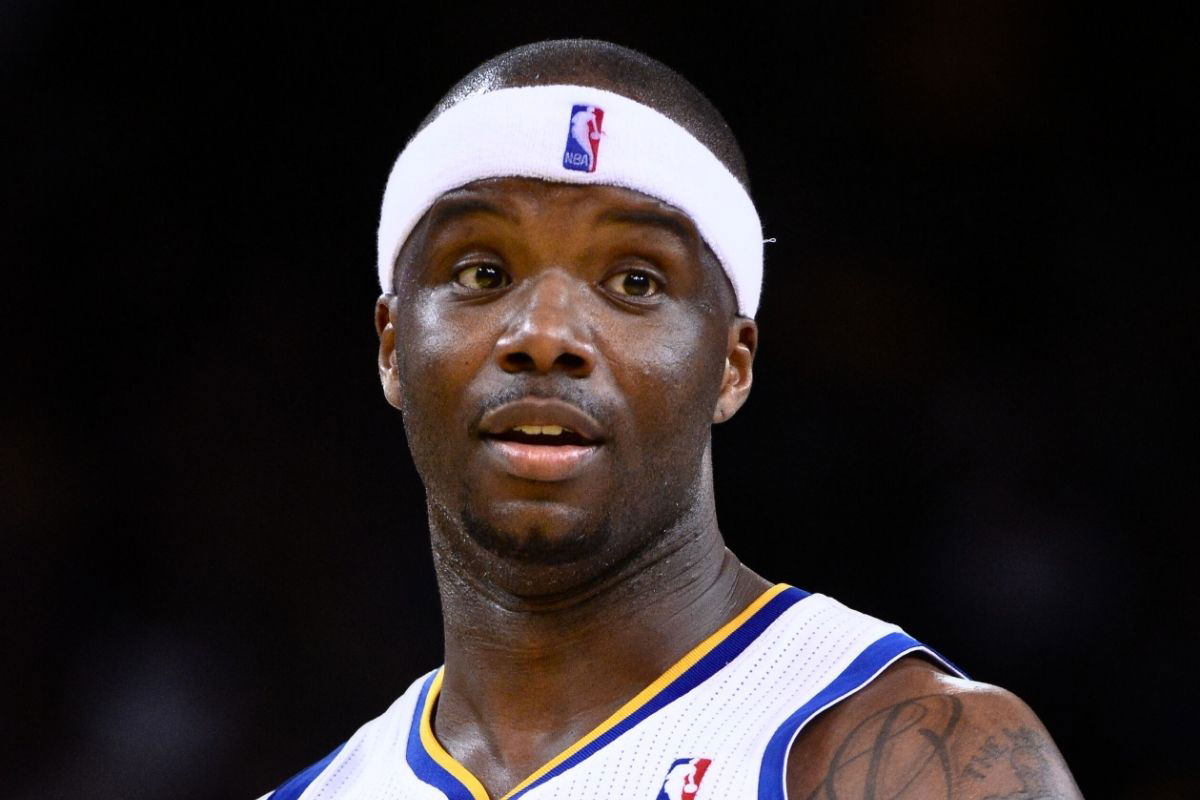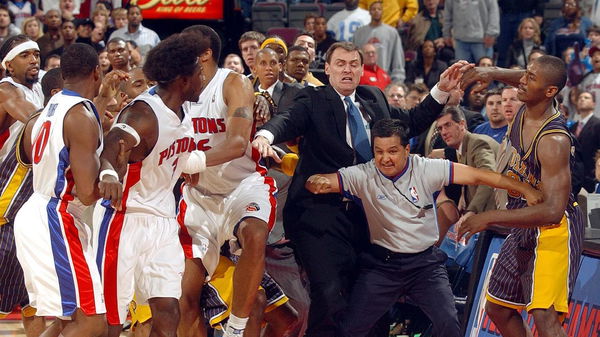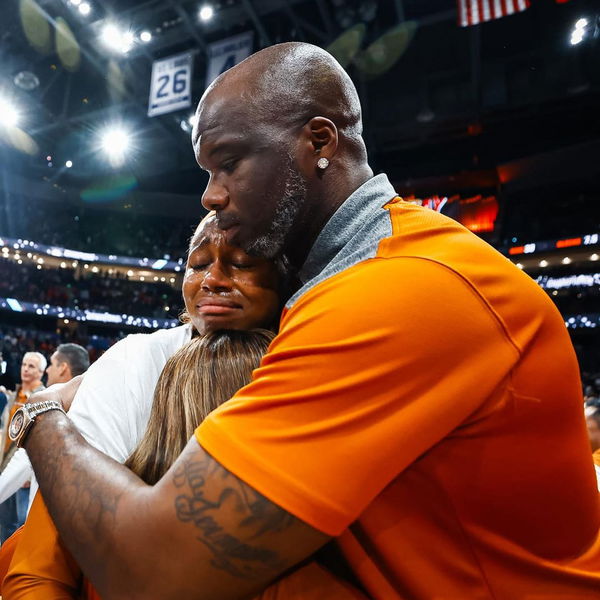
USA Today via Reuters
Apr 6, 2014; Oakland, CA, USA; Golden State Warriors center Jermaine O’Neal (7) looks on against the Utah Jazz during the third quarter at Oracle Arena. The Warriors defeated the Jazz 130-102. Mandatory Credit: Kyle Terada-USA TODAY Sports

USA Today via Reuters
Apr 6, 2014; Oakland, CA, USA; Golden State Warriors center Jermaine O’Neal (7) looks on against the Utah Jazz during the third quarter at Oracle Arena. The Warriors defeated the Jazz 130-102. Mandatory Credit: Kyle Terada-USA TODAY Sports
Some scars never really heal. The punches, the flying elbows, the kicks—you ice them, tape them, and move on. But that sinking feeling of being overlooked, unloved, or left behind? That sticks and sucks. NBA players aren’t immune to that. Sure, the league’s full of physical battles, but the emotional toll is the part nobody talks enough about. And if there’s one guy who’s lived on both sides of that coin, it’s Jermaine O’Neal—the one who thrived in the shadows while carrying the weight no stat sheet could measure.
Watch What’s Trending Now!
Jermaine O’Neal didn’t just get caught in the Malice at the Palace—he was front and center. That wild night in 2004, when a fan threw a drink at Ron Artest and chaos exploded between the Pacers, Pistons, and the crowd, turned into one of the ugliest brawls in sports history. Jermaine’s sliding punch on a fan became a defining image, and he was slapped with a 25-game suspension. But here’s the thing—while everyone was talking about the fight, nobody really asked what else he was battling. Behind all that fury on the court, Jermaine was fighting something way more personal and the emotional toll of it.
Recently, while talking on Gil’s Arena, Jermaine O’Neal opened up about what was really going on behind the scenes during the Malice at the Palace—and it was way deeper than just basketball. “As soon as that happened, when that love lost, my body broke down,” he said. “Right? Because I was no longer… like, my mind was in a different place, bro. And it was just—it was tough, bro. Like, it was like this thing, this consistent thing.”

Then, life hit even harder. “Then my son was born. And my son was born premature, right? And in my mind I’m like, ‘Well, what did I do?’ Then his lungs collapsed. Then my mother—right after that—like, my mother, her boyfriend or her husband, you know, shot himself in his head. I got to hold him together. Literally.” It was a relentless storm. “All of this stuff happened like boom, right after that,” O’Neal said on the podcast. “So it was hard to love the game—especially when you felt like the game didn’t love you back.”
After everything that went down—the punches, the headlines, the judgment—Jermaine O’Neal felt like he was stranded and isolated. “They left me out there to dry, bro,” he said on the Out The Mud podcast. “I’m talking about to this very moment. They have never said, ‘Ok well JO, listen man, I get it, it was a terrible situation.’” Still, he wasn’t looking for sympathy. “But when you give everything you’ve got… the NBA has a responsibility, just like you tell us we have a responsibility to show up and represent them the way they need to be represented,” he said.
For J.O., the real heartbreak wasn’t just the suspensions or the media frenzy—it was the feeling of being abandoned by the Pacers. “The Pacers are special to me, and that’s why I was so hurt,” he admitted. And that kind of emotional fallout doesn’t just stay in the locker room. “I lost all love for basketball,” he said. “I did not love basketball the rest of my career, and that’s when my body started to break down.”
Jermaine O’Neal opens about his childhood struggles
Jermaine O’Neal’s childhood wasn’t just rough—it was fractured from the start. Born in Columbia, South Carolina, he was raised by his mother, Angela Ocean, and grew up alongside his older brother, Clifford. But the one person who never showed up was his father. “When my mother was pregnant with me, he [father] dipped,” O’Neal shared on Out The Mud. The abandonment issues shaped everything. “I met my father when I was 30,” he said. But just after a few months, he died. And when his father passed, Jermaine discovered something even wilder—he wasn’t just one of a couple of kids. “Crazy story, my last name is made up… Not even his name. I’m one of 33 kids, true story. I met 17 of them when he died.” Just let that sink in for a second—33 children. A man he never really knew. A legacy that was never shared with him.

So when people talk about Jermaine O’Neal as just a talented high schooler who went straight to the league, they’re skipping over the most important part. He was surviving. “Not one team I played for knew that about me,” O’Neal admitted. “Not being able to pick up the phone and call my dad and ask him, ‘Can you help me?’ Or, ‘Are you proud of me?’ Or to cherish me being drafted or my kids being born.” But through all that, Angela, his mother, was his rock. “My mother, she was the force behind everything,” he said. “She wanted to set the standard, because we ain’t had nothing else but the standard to live off of.” Tough love? Absolutely. But love nonetheless.
Despite all the chaos, Jermaine found his peace on the court. By the time he hit his senior year at Eau Claire High School, he was averaging 22.4 points, 12.4 rebounds, and 5.2 blocks, earning South Carolina’s Player of the Year and McDonald’s All-American honors. But it wasn’t just about numbers. It was about proving something—to himself, to his mom, to a world that never made a place for him. And when college didn’t look like a real option because of academics, he decided to go all in. Kevin Garnett had just made the leap the year before, and Jermaine followed suit. And he carved out a name for himself. From a broken home to an 18-year long storied NBA career.
Behind every rebound and block was a man holding it all together for his family in silence. His story isn’t just one of survival—it’s about resilience that never got its due.

